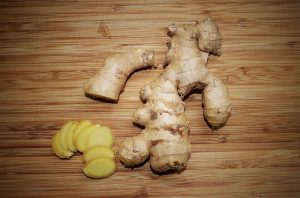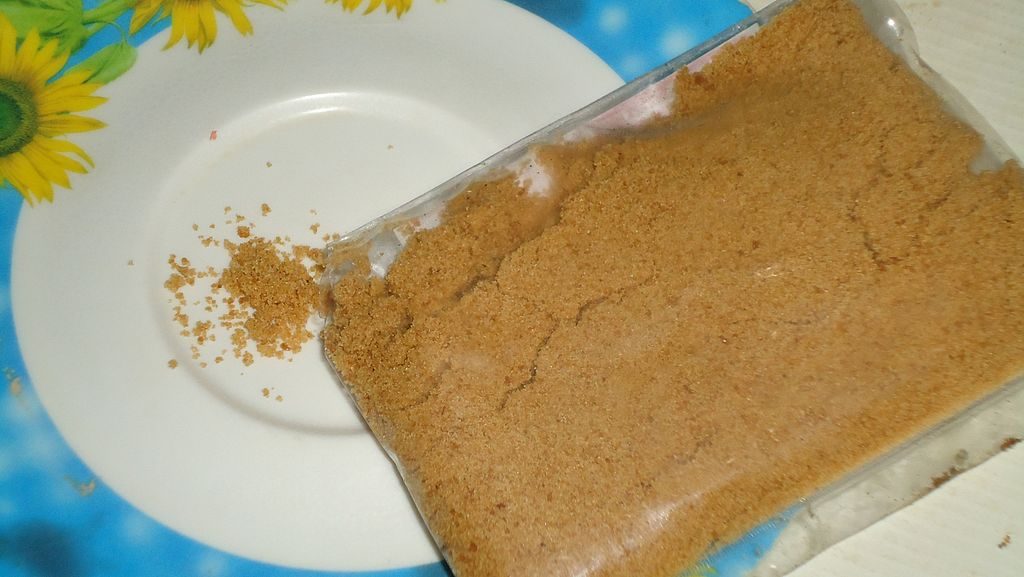Popular herb & spice ginger may help with inflammation and protect against harmful bacteria.

Ginger is a well-known herb and spice. It may have immune system benefits such as:
- Reducing inflammation. Ginger helps lower inflammation seen in inflammatory and autoimmune conditions.
- Normalizing immune function. Ginger helps the immune system perform optimally by boosting it when it is under-active or suppressing it when it is overactive.
- Protecting against bacteria. Preliminary research suggests that ginger can help fight drug-resistant bacteria.
Overview
Made from roots of the tropical plant Zingiber officinale, ginger is a herb with a long history of use as a spice and medicine. Traditionally, ginger has been used by Chinese, Ayurvedic, and other folk medicines for millennia to help with arthritis, sprains, muscle aches, pain, sore throat, digestion, dementia, and many other ailments. Today, it is also growing in popularity as a weight loss supplement.
Current research indicates that ginger has multiple biological activities that can explain its medicinal properties, including immunomodulatory, anti-inflammatory and anti-hyperglycemic effects.
Although most studies of ginger are currently restricted to animal and cell culture investigations, the findings suggest that ginger can help with autoimmune disorders such as rheumatoid arthritis, reduce inflammation (such as that present in asthma), and protect against bacterial pathogens.

How Ginger Might Help With Immunity
Normalizing immune system function
Extensive cell culture and animal studies demonstrate that ginger can both stimulate and suppress the activity of immune cells, pro-inflammatory and anti-inflammatory cytokines, and other biological molecules involved in the immune response. As such, it can help normalize immune system function by either suppressing some immune responses during times of dysfunction (e.g. chronic inflammation and autoimmune conditions), or boosting it when it is under-performing. This effect is likely linked to curcumin, one of the active ingredients in ginger. 1
Ginger Uses & Benefits for Immunity
Ginger is used for a wide variety of ailments and health concerns. In terms of immunity, it is most commonly used to reduce inflammation such as that seen in rheumatoid arthritis, asthma, and irritable bowel syndrome. Although there is a lack of human studies to back these uses, the findings of animal and cell culture research are strongly supportive of ginger’s anti-inflammatory properties.
Ginger is also frequently used to help with cold and flu infections, but this use does not have any scientific backing.

Research
Animal Research
Ginger’s immune system effects have been extensively studied in cell culture and animal studies, suggesting a number of beneficial properties.
Ginger seems to alleviate rheumatoid arthritis in rats
This study examined the use of ginger (GRPS) and turmeric (TRPS) powder in a rat model of rheumatoid arthritis. The herbs were administered at a dose of 200 mg per kg of body weight, resulting in an increase of anti-inflammatory and a decrease of pro-inflammatory cytokines and improved antoxidant activity. These effects in turn reduced the severity and occurrence of arthritis.
- The researchers concluded that “The present study found that both TRPS and GRPS significantly suppressed the incidence/severity of arthritis.“2
Ginger seems to improve asthma in mice
This study examined the use of ginger for helping with allergic asthma. Mice with asthma were treated with two ginger extracts or with methylprednisolone, a common anti-inflammatory medication. Both extracts significantly reduced airway inflammation at a level comparable to methylprednisolone.
- The researchers concluded that “Our study validated the traditional use of ginger in respiratory disorders and suggests that ginger reduces allergic airway inflammation…“3
Ginger appears to have antibacterial properties
This study examined the antibacterial properties of ginger and garlic against multiple drug-resistant bacteria that are known to cause hospital-acquired infections. Five out of 7 pathogenic bacteria species were found to be susceptible to both ginger and garlic extracts.
- The researchers concluded that “Natural spices of garlic and ginger possess effective anti-bacterial activity against multi-drug clinical pathogens and can be used for prevention of drug resistant microbial diseases…“4
Ginger seems to enhance immune system function in mice
This study examined the immunity benefits of ginger in mice and isolated cell cultures. Ginger extract was demonstrated to increase the growth of certain white blood cells and the production of several cytokines.
- The researchers concluded that “Ginger extracts may enhance the immune function by regulating the splenocytes proliferation and enhancing the cytokine prodution capacity by activated macrophages in mice.“5
Human Research
Clinical trials of ginger are scarce.
Ginger may be highly effective at improving rheumatoid arthritis
This study examined the use of ginger for rheumatoid arthritis, an inflammatory, autoimmune condition. The researchers examined the cases of 7 participants with RA, who only received temporary relief from standard medications. After consuming 5 – 50 g of fresh ginger (or 0.5 – 1 g ginger powder) daily for several months, all patients saw significant improvement in pain, joint movement, swelling, and morning stiffness, with 1 patient becoming completely symptom-free after 3 months.
- The researchers concluded that “In view of the beneficial effects that were observed on administration of ginger to patients without any side effects during the study period, and its reputation as a remedy for arthritic disorders in the Ayurvrdic and Tihh systems of medicine, a thorough study of this edible rhizome’s potential as a safe anti-inflammatory agent should be undertaken.“6
Dosage for Immunity
- There is no recommended dosage of ginger for immunity in clinical studies
- Ginger supplements can be sold as a whole root, powder, candy, tea or in capsules (dosed at 550 mg taken 1-3 times daily)
Supplements in Review Says
- Ginger root 550 mg 1-3 times daily for immunity.
We recommend ginger for helping with inflammatory disorders. Ginger won’t help you get over a cold or flu, but it does seem to have some use in disorders characterized by inflammation or autoimmunity, such as asthma and arthritis.
Given the lack of human research, it’s best to follow supplement doses. Most supplements recommend doses of 1100 – 1650 mg ginger daily.
Leave a Reply